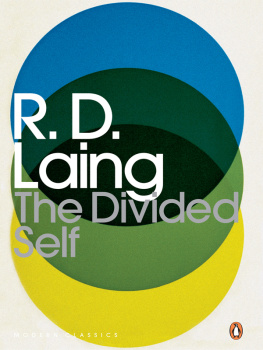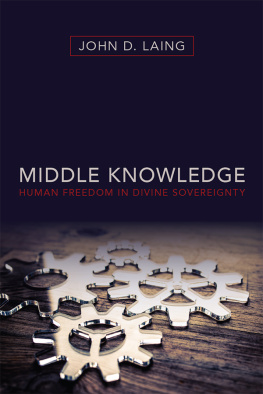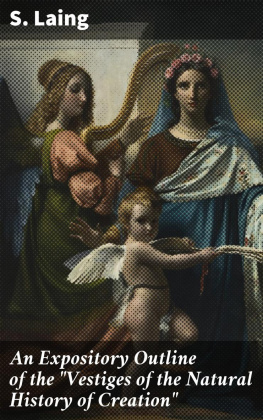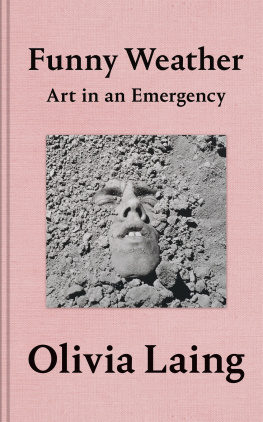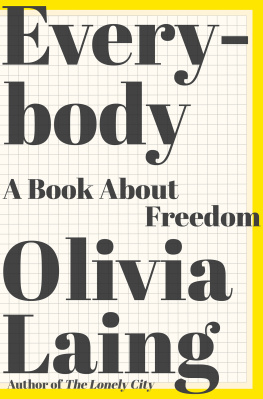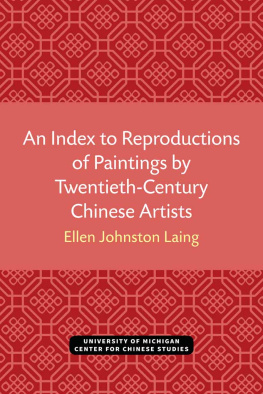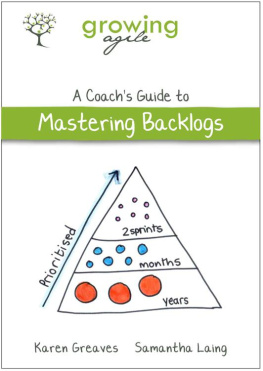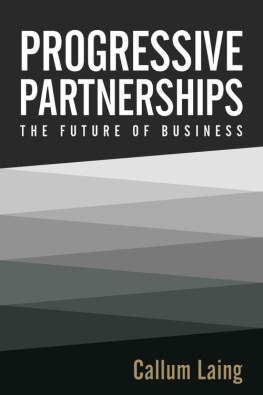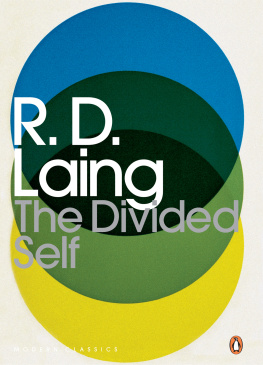Laing - The Politics of the Family
Here you can read online Laing - The Politics of the Family full text of the book (entire story) in english for free. Download pdf and epub, get meaning, cover and reviews about this ebook. City: Concord;Ont, year: 1993;1997, publisher: House of Anansi Press, genre: Children. Description of the work, (preface) as well as reviews are available. Best literature library LitArk.com created for fans of good reading and offers a wide selection of genres:
Romance novel
Science fiction
Adventure
Detective
Science
History
Home and family
Prose
Art
Politics
Computer
Non-fiction
Religion
Business
Children
Humor
Choose a favorite category and find really read worthwhile books. Enjoy immersion in the world of imagination, feel the emotions of the characters or learn something new for yourself, make an fascinating discovery.

- Book:The Politics of the Family
- Author:
- Publisher:House of Anansi Press
- Genre:
- Year:1993;1997
- City:Concord;Ont
- Rating:5 / 5
- Favourites:Add to favourites
- Your mark:
- 100
- 1
- 2
- 3
- 4
- 5
The Politics of the Family: summary, description and annotation
We offer to read an annotation, description, summary or preface (depends on what the author of the book "The Politics of the Family" wrote himself). If you haven't found the necessary information about the book — write in the comments, we will try to find it.
Laing: author's other books
Who wrote The Politics of the Family? Find out the surname, the name of the author of the book and a list of all author's works by series.
The Politics of the Family — read online for free the complete book (whole text) full work
Below is the text of the book, divided by pages. System saving the place of the last page read, allows you to conveniently read the book "The Politics of the Family" online for free, without having to search again every time where you left off. Put a bookmark, and you can go to the page where you finished reading at any time.
Font size:
Interval:
Bookmark:
The Massey Lectures are co-sponsored by Massey College, in the University of Toronto, and CBC Radio. The series was created in honour of the Right Honourable Vincent Massey, former governor general of Canada, and was inaugurated in 1961 to enable distinguished authorities to communicate the results of original study or research on important subjects of contemporary interest.
Ronald David Laing, born in 1927, was a native of Glasgow, Scotland, where he attended grammar school and, in 1951, obtained his degree in medicine from Glasgow University. He earned a Diploma in Psychiatric Medicine from the University of London, and received his psychoanalytical training between 1956 and 1960. Dr. Laing was a psychiatrist in the British Army from 1951 to 1953, then returned to Glasgow University to work in the Department of Psychological Medicine for three years. From 1956 to 1967 he worked at the Tavistock Clinic and the Tavistock Institute of Human Relations. In the latter part of that period he served as principal investigator of the Institutes Schizophrenia and Family Research Unit and conducted research as a Fellow of the Foundations Fund for Research in Psychiatry. From 1962 to 1965 he was director of the Langham Clinic for Psychotherapy, London.
After 1965, Dr. Laing worked with the Philadelphia Association, London, and in private practice. He was also a visiting consultant at mental health centres in Bethesda, Md., and in Boston. His work with the Philadelphia Association, of which he was chairman and a founding member, was an attempt to develop, with a number of his colleagues, a new strategy in terms of the relation of psychotic breakdown to family and social networks. This included establishing places which are not hospitals, nursing homes, or hostels, but simply households where there is no treatment in any conventional sense. Rather, there is an attempt to create an environment in which people can work through inner involvements without drugs or other interventions.
Dr. Laing died in 1989. According to Anthony Clare, writing in the Guardian, his major achievement was that he dragged the isolated and neglected inner world of the severely psychotic individual out of the back ward of the large gloomy mental hospital and on to the front pages of influential newspapers, journals and literary magazines Everyone in contemporary psychiatry owes something to R. D. Laing.
THE POLITICS OF THE FAMILY
ALSO BY. R. D. LAING
The Divided Self
Self and Others
Interpersonal Perception
(with H. Phillipson and A. R. Lee)
Reason and Violence
(with David Cooper)
Sanity, Madness and the Family
(with Aaron Esterson)
The Politics of Experience
Knots
The Facts of Life
Do You Love Me
Conversations with Children
Sonnets
The Voice of Experience
R.D. LAING

Copyright 1969 by R.D. Laing
All rights reserved. No part of this publication may be reproduced or transmitted in any form or by any means, electronic or mechanical, including photocopying, recording, or any information storage and retrieval system, without permission in writing from the publisher.
Published in 1993 by
House of Anansi Press Limited
1800 Steeles Avenue West
Concord, Ontario
L4K 2P3
(416) 445-3333
First published in 1969 by CBC Enterprises
CBC logo used by permission
Canadian Cataloguing in Publication Data
Laing, R. D. (Ronald David), 1927
The politics of the family
(Massey lectures)
Text of 5 radio lectures broadcast during
Nov. and Dec. 1968.
ISBN 0-88784-546-0
1. Family. I. Title. II. Series.
HQ7284.35 1993 306.85 C 93-094910-2
Book design: Brant Cowie/ArtPlus Limited
Printed and bound in Canada
House of Anansi Press gratefully acknowledges the support of the Canada Council, the Ontario Ministry of Culture, Tourism, and Recreation, Ontario Arts Council, and Ontario Publishing Centre in the development of writing and publishing in Canada.
In these talks I have sketched tentative outlines of some components of a prospective systematic theory that does not yet exist.
I have not presupposed in the listener or reader any knowledge of the work with families (therapy, research, theory) carried out, especially in the United States, in the last 25 years.
A list of the key people in this field, were it to include everyone, would be too long: and misleading, were I to mention the few who have especially influenced me. I have been influenced by some, primarily through their writings: others, by personal association and friendship: others indirectly, through their influences on others, etc. The reader new to this field, who wishes to follow through into the background of family studies of the kind from which these talks derive, can do so by looking up the footnoted references which, containing extensive bibliographies, are gate openers to the whole field.
I hope that my fellow professionals will find something to interest them here. The theory of sets and mappings is being applied to great effect in linguistics, kinship systems, mythology, and other areas of social science. Can we apply this way of thinking to the psychosocial interior of families in our own society? Definitely yes. But what will it yield? Will it be fruitful, will it enable us to discover more, see more clearly, understand better, provide useful and effective guidelines for therapy, help to get our research designs into sharper outline? We do not yet know. This might be a treacherous cul-de-sac. But I think the risk is worth taking. It may be a way out of the cul-de-sac in which, especially, some of the most technically best research in this field can get stuck. Just because it is careful, and meticulous, such research sometimes leads to a type of analysis of familial interactions, which returns findings that somehow continually never seem quite able to answer the questions we really want answered. We have taught ourselves that it is useless to ask questions, when we have no methodology to answer them. But, between the impossible and the trivial, there may be a way that is both feasible and significant. At any rate, I would like to be counted as still trying to find it.
I did not make it easy for the Canadian Broadcasting Corporation in preparing these talks. It is a pleasure to thank Phyllis Webb and Jeff Anderson of the Canadian Broadcasting Corporation for making everything as easy as possible for me at all times.
R. D. L.
London. January, 1969
THE POLITICS OF THE FAMILY
The first family to interest me was my own. I still know less about it than I know about many other families. This is typical. Children are the last to be told what really was going on before they came into the world, especially when they want to know not merely a few discontinuous points in time, called dates, and other apparently hard facts, such as who was born when, died when, married whom, had what children, when, who earns what and how, and so forth.
I am concerned here with the texture of the actual lived experience of people in families: and with how the experience of people who live together is related to the dramatic structure, which is the social
Font size:
Interval:
Bookmark:
Similar books «The Politics of the Family»
Look at similar books to The Politics of the Family. We have selected literature similar in name and meaning in the hope of providing readers with more options to find new, interesting, not yet read works.
Discussion, reviews of the book The Politics of the Family and just readers' own opinions. Leave your comments, write what you think about the work, its meaning or the main characters. Specify what exactly you liked and what you didn't like, and why you think so.

